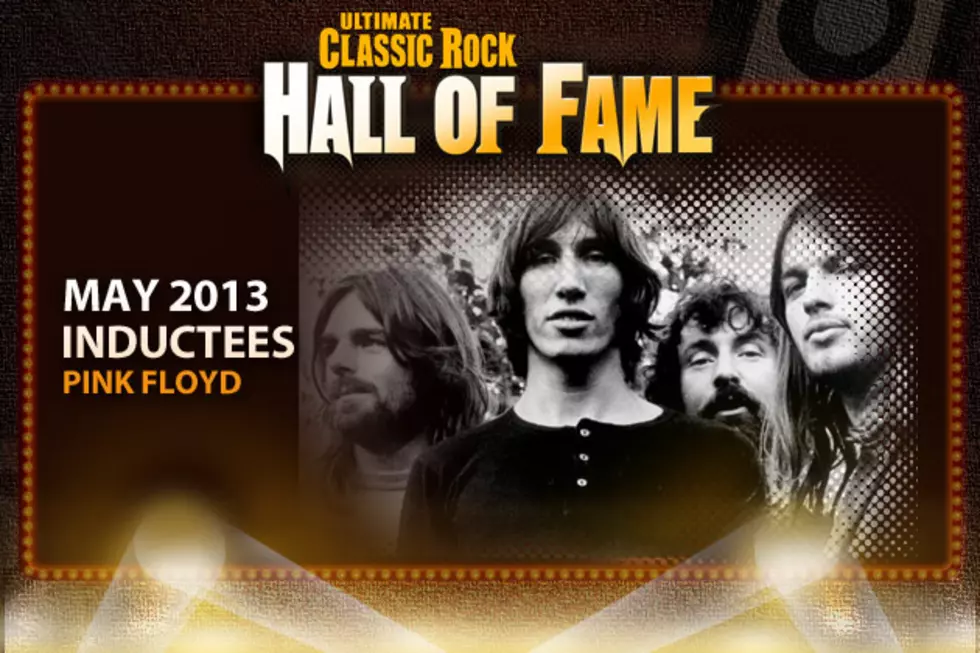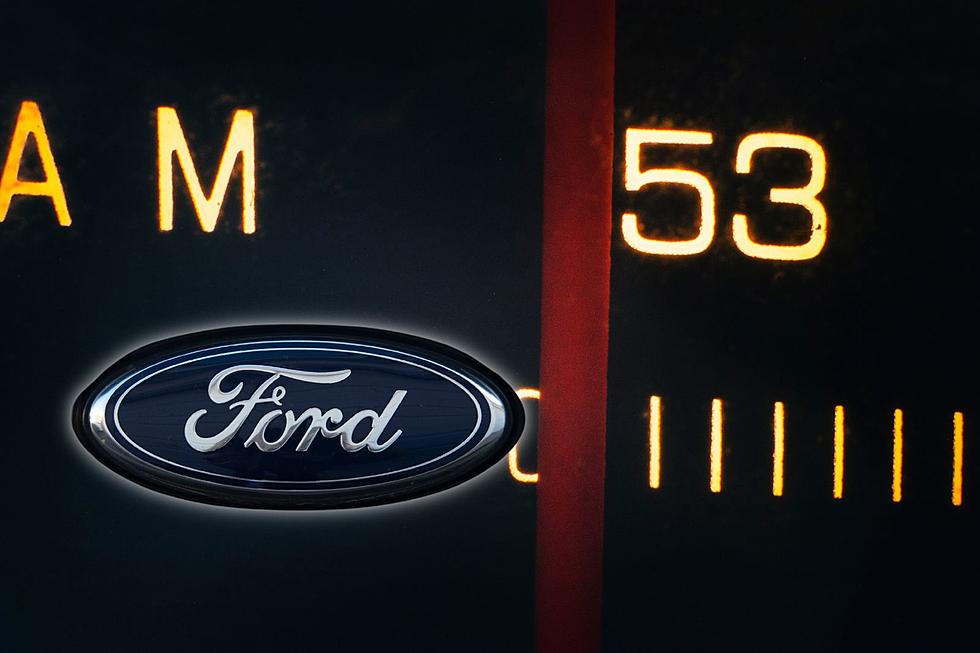
Pink Floyd Inducted Into Ultimate Classic Rock Hall of Fame
Congratulations to Pink Floyd, who have defeated the Doors to become the third band elected into the 100% fan-voted Ultimate Classic Rock Hall of Fame.
Pink Floyd can almost be broken down into two separate bands. There’s the pre-Syd Barrett era, and there’s the post-Syd Barrett era. One didn’t sell a whole lotta records; the other was one of the ‘70s’ biggest groups. One made, for the most part, compact songs that stood out as some of the weirdest and brightest psychedelic singles of the ‘60s; the other made, for the most part, sprawling concept albums with epic-sized suites. But they both created a body of work that remains among the most ambitious and greatest in rock history. No wonder they're now part of the Ultimate Classic Rock Hall of Fame.
They formed in London in 1965, with singer, songwriter and guitarist Barrett steering the band through early tripped-out singles like ‘Arnold Layne’ and ‘See Emily Play.’ With his sharp British accent and strung-together lyrics -- which sometimes made sense but often did not – Barrett played up his Britishness … and his fondness for mind-altering drugs. By the time Pink Floyd made their terrific debut album, 1967’s ‘The Piper at the Gates of Dawn,’ he was pretty deep within the dark holes of his mind.
His trips occasionally aided the group’s music – ‘Piper’ is revelatory partly because of Barrett’s enhanced vision – but they also hindered its growth. As use turned into abuse, his bandmates could only do so much to support him, both physically and creatively. By the time they got around to making their second album, 1968’s ‘A Saucerful of Secrets,’ Pink Floyd had moved on, leaving Barrett, whose contributions to the record are minimal.
From there, it took the band another five years to completely shake Barrett’s influence. Slowly but surely albums like ‘Atom Heart Mother’ and ‘Meddle’ began to reveal another side of Pink Floyd – one that was into stretched-out epics that all but abandoned vocals for instrumental interplay. It’s during this era that the group found its footing and inspiration to make its masterpiece.
When Pink Floyd released ‘The Dark Side of the Moon’ in 1973, it catapulted them to another stratosphere – commercially, but also musically. The album – a concept record tied together with a loose narrative about Barrett’s ongoing madness spurred by his drug use – unspools like a 40-minute suite complete with repeating motifs and lyrical refrains. It was a monster hit, reaching No. 1 and becoming one of the biggest selling albums ever (to date, it’s sold more than 15 million copies).
There was no stopping the band after this. ‘Wish You Were,’ from 1975, followed ‘Dark Side’’s themes and musical scope, and hit No. 1. Two years later ‘Animals’ pulled together Roger Waters’ mistrust of the British government into a tightly wound allegory featuring dogs, sheep and pigs. And then came Waters’ most personal and potent work, 1979’s ‘The Wall,’ a double-record opus that took in everything from his childhood to politics and band strife to fans and his own minor descent into rock-star madness. It’s a monumental piece, a concept album so grand and fully formed that a 1982 movie version didn’t require much clarification.
But then it all came crashing down. Waters’ ire for fame’s increasing demands, especially from Pink Floyd’s fans (whom he not so secretly loathed), found its way into the band’s music. ‘Animals’ hinted at this; ‘The Wall’ was all about it. By the time they made 1983’s ‘The Final Cut,’ a sequel of sorts to ‘The Wall’ that’s way more political and convoluted, he had pretty much taken over the band from David Gilmour, Nick Mason and Richard Wright. Within a year, he was gone and into a solo career.
The remaining members of Pink Floyd carried on for another decade or so with Gilmour at the helm, releasing two albums that filtered the band’s legacy through mostly bland hard rock. They almost sounded like a Pink Floyd tribute band at times. So in a way, Pink Floyd can be broken down into three groups. The middle one averaged the greatest, releasing three classic albums in a six-year span. But they never would have gotten there without the first, the biggest influence on their best work.
Further Reading:
Top 10 Pink Floyd Songs
Top 10 Pink Floyd '70s Songs
Top 10 Pink Floyd Syd Barrett Songs
Top 10 Pink Floyd David Gilmour Songs
'Comfortably Numb' - Top 100 Classic Rock Songs
More From 103.7 The Hawk










